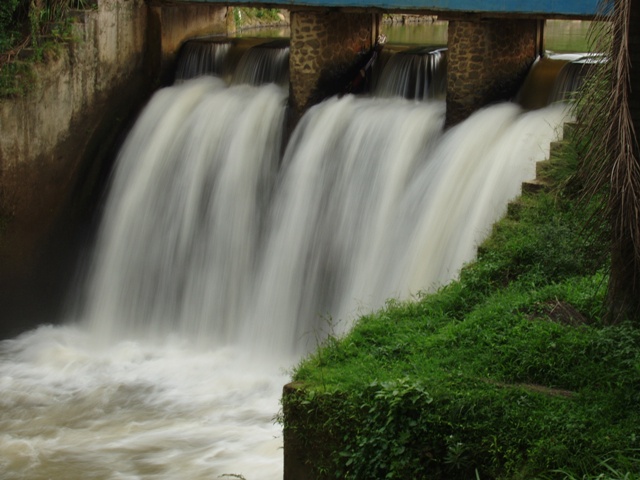
Officials and experts of the five Central Asian countries met in Bishkek on 19-20 September in a concluding meeting of the United Nations Economic Commission for Europe (UNECE) project “Capacity-building for cooperation on dam safety in Central Asia”. The project has assisted Central Asian countries in establishing effective national legislation and technical regulatory frameworks, as well as in strengthening subregional cooperation on dam safety.
The meeting summarized the progress achieved during the project that includes:
- Enactment of national legislation or its further enhancement in Kazakhstan, Tajikistan and Uzbekistan;
- A draft agreement on the safety of hydro-technical installations in Central Asia;
- Inter-State cooperation to increase the safety of individual dams such as a safety assessment on the Kirov dam by a joint Kazakh-Kyrgyz working group (see http://www.youtube.com/watch?v=Q00p_xKH4NQ);
- Improved cooperation at the national level between agencies with responsibilities for dam safety;
- A model technical regulation on the safety of hydro-technical installations, and
- Increased capacity to deal with and awareness about dam safety issues owing to a number of UNECE-organized training activities.
Meeting participants stressed that the basis for long-term cooperation, an agreement on the safety of hydro-technical installations, needs to be concluded. They agreed to continue cooperation to ensure the safety of their ageing dams, which present a looming threat owing to the double burden of growing populations in settlements downstream and extreme weather conditions sparked by climate change, such as floods and droughts. Country representatives requested UNECE to support the development of further work at the national as well as subregional levels.
In Central Asia, ageing dams and lack of funding for their adequate maintenance represent a very real threat to the lives, health, property and environment of the subregion. In 2010, the failure of the Kyzyl-Agash Dam in Kazakhstan caused the flooding of the nearby village, killing at least 43 and leaving some 300 people injured.
Moreover, the safe exploitation of the ageing water infrastructure in Central Asia, in particular the hundreds of dams and reservoirs built 40 to 50 years ago, is crucial for the future of these countries. Dams and reservoirs are of major importance for the economy and future development of the subregion — they ensure drinking water supply by contributing to seasonal and long-term regulation of river flows; and they provide a reliable source of water for irrigation, industrial water uses, and hydropower.
The dam safety project has been funded by Finland and the Russian Federation and is a component of the UNECE Water Convention work programme. It is implemented in cooperation with the International Fund for Saving the Aral Sea. The project is part of the Environment and Security Initiative.
For further information please visit: http://www.unece.org/env/water/damsafety.htm or contact:
Mr. Bo Libert
UNECE Regional Adviser on Environment
Phone: +41 (0)22 917 2396
E-mail: [email protected]
Note to Editors:
The project “Capacity-building for cooperation on dam safety in Central Asia” was initiated in 2006 with a major financial contribution from Finland. Additional financial support is provided by the Russian Federation. The project aims to help Central Asian countries to set up or revise national dam safety regulatory frameworks, to achieve their harmonization and to promote subregional cooperation for information exchange and notification in case of accidents or emergency situations related to hydro-technical infrastructure. An overview of dam safety issues in Central Asia has been prepared in the framework of the project (see UNECE publication “Dam Safety in Central Asia: Capacity-building and Regional Cooperation” http://www.unece.org/env/documents/2010/wat/Publication/MPWAT%2026%20_E.pdf)
The Environment and Security (ENVSEC) Initiative was established in 2003 and includes the Organization for Security and Cooperation in Europe, the Regional Environmental Centre for Central and Eastern Europe, the United Nations Development Programme, UNECE and the United Nations Environment Programme. The ENVSEC Initiative works to assess and address environmental problems, which threaten or are perceived to threaten security, societal stability and peace, human health and/or sustainable livelihoods, within and across national borders in conflict prone regions.

